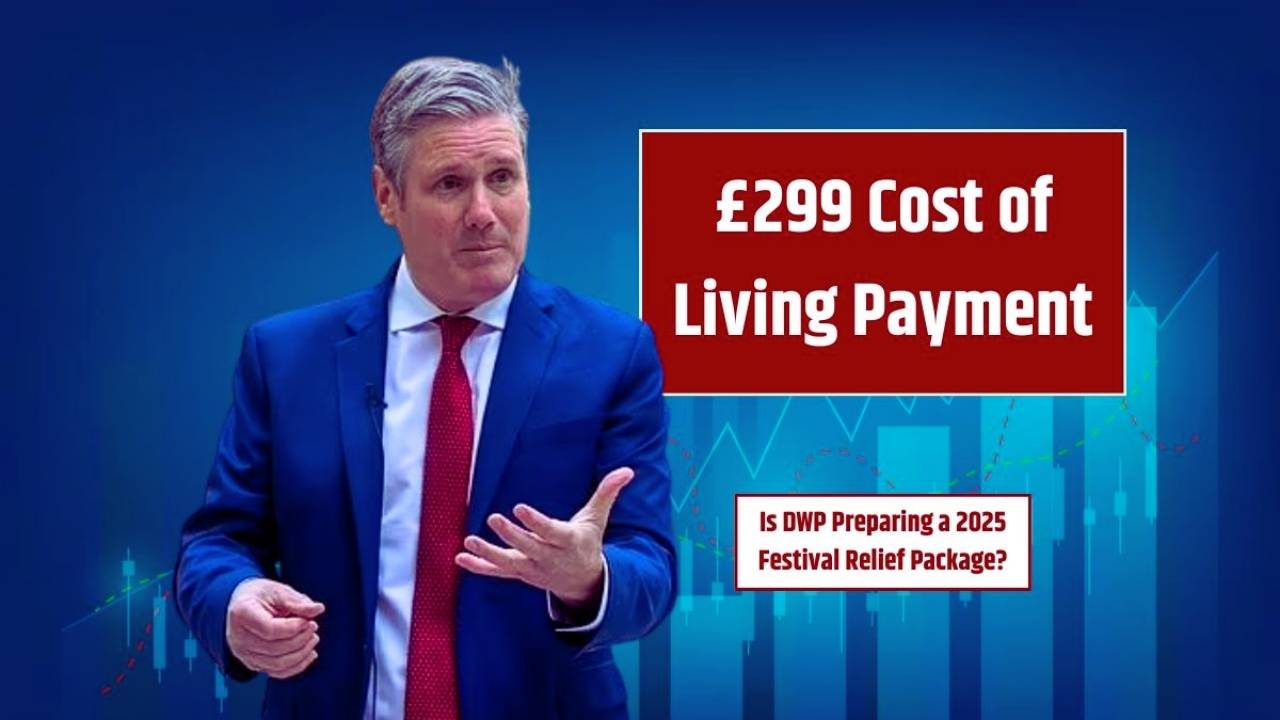The Department for Work and Pensions (DWP) has announced a £299 Cost of Living Payment to help millions of UK households manage rising bills in June 2025. This one-off, tax-free payment targets low-income families and pensioners struggling with costs like food, energy, and rent. After a series of similar payments from 2022 to 2024, this new support offers relief as prices remain high. Here’s a simple guide to who qualifies, when the money will arrive, and how to ensure you get it.
Why This Payment Is Happening
With inflation pushing up everyday costs, the government is stepping in to support those on low incomes. The £299 payment follows previous Cost of Living Payments, like the £300 paid in 2023 and £299 in 2024, which helped families during tough times. The DWP says this latest boost, set for 2025, aims to prevent hardship for people on benefits like Universal Credit or Pension Credit. While some hoped for larger payments, this cash is meant to ease pressures as summer bills roll in.
Who Can Get the £299 Payment
To qualify, you must be receiving certain benefits or tax credits during a specific qualifying period, likely in April or May 2025 (exact dates to be confirmed). The payment is automatic, so you don’t need to apply. Eligible benefits include Universal Credit, Income Support, Pension Credit, and Child Tax Credit, among others. If your benefit was reduced to £0 during the qualifying period due to a sanction, you won’t get the payment unless you received a hardship payment.
Here’s a breakdown of key eligibility details:
| Benefit | Eligibility Notes |
|---|---|
| Universal Credit | Must be entitled during qualifying period |
| Income-based Jobseeker’s Allowance | Includes joint claims with partner |
| Pension Credit | Any entitlement, even 1p, counts |
| Child Tax Credit | Paid by HMRC, not DWP |
| Working Tax Credit | Paid by HMRC, not DWP |
- You won’t qualify if you only get New Style ESA, New Style JSA, or contributory ESA.
- Joint claims get one £299 payment, not two.
- If you’re awarded a qualifying benefit later, you might still get the payment.
- The money won’t affect your other benefits or tax.
When and How You’ll Get the Money
The £299 payment is expected to be paid between June 10 and June 27, 2025, directly into the bank account where you receive your benefits or tax credits. Look for “DWP COL” or “HMRC COLS” on your bank statement, followed by your National Insurance number. If you’ve changed your bank account, update your details with the DWP or HMRC now to avoid delays. If the payment doesn’t arrive by late June, contact the DWP helpline (0800 121 4400) or HMRC to report it missing. Payments may shift slightly around the June 14, 2025, bank holiday.
How to Prepare for the Payment
To ensure you get the £299 without issues, check that your bank details and address are up to date with the DWP or HMRC. You can do this online via GOV.UK or by calling the helpline. Keep an eye on your benefit statements in spring 2025 to confirm you’re entitled during the qualifying period. If you’re not yet on benefits but think you might qualify, apply for something like Universal Credit or Pension Credit now to be eligible. Citizens Advice can offer free help with applications or checking eligibility.
What People Are Saying
The £299 payment has sparked mixed feelings. On X, many welcome the extra cash, with one user saying, “This will help with my kids’ summer clothes and bills.” Others argue it’s too small compared to rising costs, with some calling for payments closer to £500. There’s also confusion, as some posts on X wrongly claim the payment is already confirmed for earlier dates. The DWP has clarified that June 2025 is the target, with no earlier payouts. Charities like Turn2Us are urging people to check for unclaimed benefits to boost their income further.
Other Support Available in 2025
Beyond the £299 payment, other help is out there. The Household Support Fund, extended until March 2026, offers grants or vouchers through local councils—check your council’s website for details. Pensioners might get Winter Fuel Payments (£150–£300) or the Warm Home Discount for energy bills. If you’re on Universal Credit, you can apply for a Budgeting Advance Loan with lower repayments from April 2025. With over £20 billion in benefits unclaimed yearly, visit GOV.UK or use Turn2Us’ grant search tool to find extra support. This £299 boost is a start, but planning ahead can make it go further.




